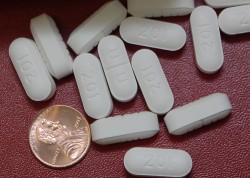Call our toll free hotline:
Get Help NOW
Top Hydrocodone Treatment Centers

Don’t struggle with your hydrocodone addiction any longer!
Living with hydrocodone addiction is not easy, either for the user or for their loved ones. Fortunately, there are a number of excellent and very reputable centers across the nation who are equipped to handle the worst effects of hydrocodone addiction properly and compassionately. Chances are good that no matter where you are, there is a center near you that can help you or your loved one break the cycle of addiction.
Hydrocodone addiction doesn’t have to be a life, or death, sentence. With new breakthroughs in neurochemistry and revelations about how the human brain works come revolutionary new treatments which are quicker, easier, longer lasting, and better for the patient. The first step to getting help is acknowledging the problem and then seeking out someone who can assist you. If you or your loved one is struggling with hydrocodone addiction, finding real treatment and real solutions to not only stop the addiction but prevent it from coming back is a wise option. Don’t let hydrocodone ruin your life or that of someone you care about. Seek out help today, and give them a brighter, addiction free tomorrow.
Call800-256-3490and get help today! Who Answers?What is Hydrocodone?
Hydrocodone is an opioid that is typically prescribed to patients for pain relief but unfortunately is a very addicting medication. This drug is often compounded with other drugs such as ibuprofen or aspirin to produce a more mildly effective pain killer. Why hydrocodone is compounded with aspirin it is commonly referred to as Lortab and when compounded with ibuprofen the drug becomes what is commonly known as Vicodin. The analgesic effects of hydrocodone are similar to those of many other opioids and include euphoria, sedation and a numbing sensation.
Leading Causes of Hydrocodone Addiction
Hydrocodone is the narcotic ingredient in painkillers such as Vicodin, Lorcet, and Lortab. When used as prescribed under a doctor’s care, hydrocodone is a powerful but reasonably safe pain reliever. However, hydrocodone can lead to tolerance with prolonged usage, meaning more must be ingested to achieve the same effect. Many people become addicted to hydrocodone by being exposed to it outside the parameters of a physician’s scrutiny. Because hydrocodone is one of the most popular prescription medications, it is cheap, easy to get, and gives a powerful narcotic high lasting anywhere from a half hour to several hours. One estimate states that up to one third of all medicine cabinets in America may contain hydrocodone-based products. Because of these properties, Vicodin and similar drugs have become the main attraction at parties.
Lowered inhibitions, a reduction or stoppage of pain on a temporary basis, and a feeling of well-being, relaxation, or euphoria are all reported reasons for addicts to continue usage. These are also the properties most likely to attract recreational users.
Why Quit Hydrocodone?
When a person is happy, they secrete doses of dopamine. This is a natural endorphin which creates the floating, free feeling also caused by hydrocodone. Prolonged use of hydrocodone without medical necessity can result in permanent damage to the dopamine receptors and secretors in one’s brain. Hydrocodone abuse can also result in a reduced sex drive, bruising, bleeding, hearing loss, allergic reactions, seizures, rashes, and muscle spasms. Long-term damage can result from misusing hydrocodone, particularly in someone who did not have a medical reason to take it in the first place. This is particularly true when taking hydrocodone with acetaminophin (Tylenol), as taking more than four grams of acetaminophin per day can cause liver damage or failure.
Need free or low-cost treatment? Find free, state funded or low cost treatment options.
Treatment OptionsHydrocodone Withdrawal Symptoms
The first and most obvious symptom of withdrawal is a strong craving for the drug. Hydrocodone users may become listless, moody, irritable, or suffer from violent mood swings. Some other symptoms of hydrocodone withdrawal are nausea, vomiting, flu-like symptoms, sweating, insomnia, restlessness, muscle or bone aches, and spasms. Because the withdrawal symptoms are so unpleasant, many addicts refuse to accept treatment until it’s too late.
Have money or private insurance? If you can afford private treatment call us now:
800-256-3490 Who Answers?Treatment for Hydrocodone Addiction
There are several kinds of treatment for hydrocodone addiction on both in-patient and out-patient bases. These include rehabilitation, in-hospital detox, rapid drug detox, and faith and therapy based programs such as NarcAnon and other similar groups. Of all of these, the rapid drug detox is the most controversial and the most scrutinized at this time. However, patients who undergo the rapid drug detox method report a higher rate of success and greatly reduced withdrawal symptoms over traditional detoxification treatments and methods.
Choosing the appropriate kind of treatment for hydrocodone addiction depends on the person, and a physician should always be engaged prior to deciding on a treatment protocol. This ensures that the user is always under a doctor’s care and supervision, reducing the likelihood of problems or errors with the treatment and increasing the odds of successfully kicking the addiction.
Find Rehab Centers by State
Call800-256-3490and get help today! Who Answers?- Alabama
- Alaska
- Arizona
- Arkansas
- California
- Colorado
- Connecticut
- Delaware
- Florida
- Georgia
- Hawaii
- Idaho
- Illinois
- Indiana
- Iowa
- Kansas
- Kentucky
- Louisiana
- Maine
- Maryland
- Massachusetts
- Michigan
- Minnesota
- Mississippi
- Missouri
- Montana
